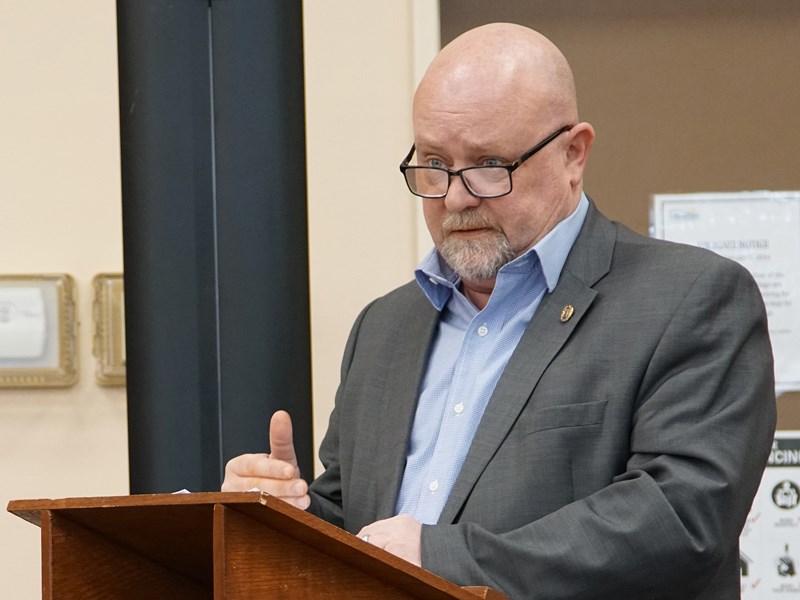City of Powell River will be applying for funds from Island Coastal Economic Trust (ICET) to carry out a property strategy.
At the April 23 meeting of city council, councillors heard a presentation from director of properties, development and communications Scott Randolph regarding a city-owned property strategy. Council gave approval to an application to the ICET economic development readiness program for $20,000 in matching funds to undertake development of the strategy.
Randolph said shortly after acquiring the remainder of properties owned by Powell River Waterfront Development Corporation in the fall of 2019, council expressed a strong interest in building a strategy for all city-owned properties that would include consultation with the public about future development. He said this item was included in the corporate strategic plan as one of the priority projects.
“Early in 2020, senior development staff took time to talk about the strategy, what it should entail, and go through the city’s inventory of 147 properties, which represents about 700 acres, to eliminate properties that shouldn’t be considered for analysis, such as parks, trails and city facilities,” said Randolph. “We were able to whittle that down to a manageable number, which came to about 50 properties.
“The intent is to engage a qualified firm, employing the combination of a professional planner, land economist and [geographic information systems] specialist, to formulate the strategy.”
Randolph said there are three main components of the work. It will entail reviewing and refining the land inventory, and identifying short, medium and long-term redevelopment and disposition sites. He said not all the lands should be put up for sale, as there may be opportunities for partnership and redevelopment of those properties that benefit both parties. Taking a look at the highest and best use analysis of those sites is also a consideration.
At the end of the project, the city should have a strategy that produces a roadmap for redevelopment, and/or disposition of its surplus properties.
“The expectation is that the city will be able to begin implementation of the strategy immediately,” said Randolph.
The $20,000 in matching funds from the city is already in the budget for this year, according to Randolph.
Mayor Dave Formosa said the city has had good success with procuring ICET funds in the past. He said 50 per cent funding had been received for Inland Lake trails, the School District 47 campus at Powell Lake, and the infill at the harbour and south harbour.
“In total, it was about $4 million,” said Formosa. “That was the first year that councillor Maggie Hathaway, councillor Jim Palm and myself were here, and I was on the ICET board at the time, fighting very hard for these funds. Powell River did very well.”
Hathaway asked how often this opportunity to apply for funding comes up. She said the city is trying to cut costs as much as it can, so she wondered if there would be a future opportunity to apply.
Randolph said the door is always open with ICET with this program.
“We proceeded with it because it was in the corporate strategic plan to work on it this year,” said Randolph. “It was a priority item, so that’s why we prepared an application for matching funds because it was in the work plan this year to get it done.”
Councillor George Doubt said he was in favour of doing the strategy now.
“We’ve had, over the time I’ve been on council, several people who have approached council,” said Doubt. “I’ve seen letters where people have said they would like to see the city consider selling those particular pieces of land. They would like to buy land and do various different things with it.
“I’m not one who thinks selling land is a really good idea. Land is a good thing to own; it keeps getting worth more value all of the time. It gives the city considerable control over what goes on. I’d be more in favour of leasing land to enterprises than I would be to selling it. However, if you are going to sell land, which some communities are saying they intend to do to help them get through the COVID-19 financial crisis, you should have an independent and professional view of the value and possible uses of that property.”
Doubt said it was ridiculous in his view to sell something where the best use is not understood, or the full value is not understood.
“In order to do that, you should get an independent, outside evaluation of that,” said Doubt. “It would be unwise for the city to sell any property without understanding the value and use it could be put to in our community, and to make sure it goes by the strategic objectives of council and the city.”
Councillor Cindy Elliott said she was in favour of the strategy. She said COVID-19 has put a lot of communities in a position where they are going to be looking to balance the budget. One tool would be to somehow get revenue out of lands.
Formosa said that currently, any property the city leases or sells has a professional report created and an appraisal.



